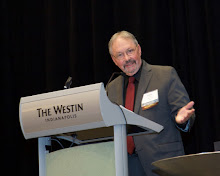This year’s results, released at the World Economic Forum in Davos in late January, reflect trends that have been accelerating over the past 5 years. The warning signs are no longer so muted, but there are also opportunities – particularly for NGOs.
In a news release announcing the 2020 results, Richard Edelman, CEO of the firm, was quoted as saying: “We are living in a trust paradox. Since we began measuring trust 20 years ago, economic growth has fostered rising trust. This continues in Asia and the Middle East but not in developed markets, where national income inequality is now the more important factor. Fears are stifling hope, and long-held assumptions about hard work leading to upward mobility are now invalid.”
Some key findings from the 2020 Barometer:
- 83% of employees globally are worried about job loss due to automation, a looming recession, lack of training, cheaper foreign competition, immigration and the gig economy.
- 57% of respondents worry about losing the respect and dignity they once enjoyed in their country.
- Nearly 67% feel the pace of technological change is too fast.
- 76% say they worry about fake news being used as a weapon.
- 58% say business is the most trusted institution, taking the lead role in global governance.
- CEOs are expected to lead from the front. 92% of employees say CEOs should speak out on issues of the day, including retraining, the ethical use of technology and income inequality. 75% of the general population believe CEOs should take the lead on change instead of waiting for government to impose it.
“People’s expectations of institutions have led us to evolve our model for measuring trust,” said Edelman. “Trust today is granted on two distinct attributes:
- competence (delivering on promises); and.
- ethical behavior (doing the right thing and working to improve society). It is no longer only a matter of what you do—it’s also how you do it.”
This year’s results reveal that none of the four institutions (business, non-governmental organizations, government, media) is seen as both competent and ethical.
- Business ranks highest in competence, holding a massive 54-point edge over government as an institution that is good at what it does (64 percent vs. 10 percent).
- NGOs lead on ethical behavior over government (a 31-point gap) and business (a 25-point gap).
- Government is perceived as both incompetent and unethical but is trusted more than twice as much as business to protect the environment and close the income inequality gap.
- Media is also viewed as incompetent and unethical: a majority (57 percent) don’t believe the media does a good job of differentiating opinion and fact but find them invaluable on covering news (58 percent).
You can view the 2020 Trust Barometer by clicking here. It's more than worth a look.





